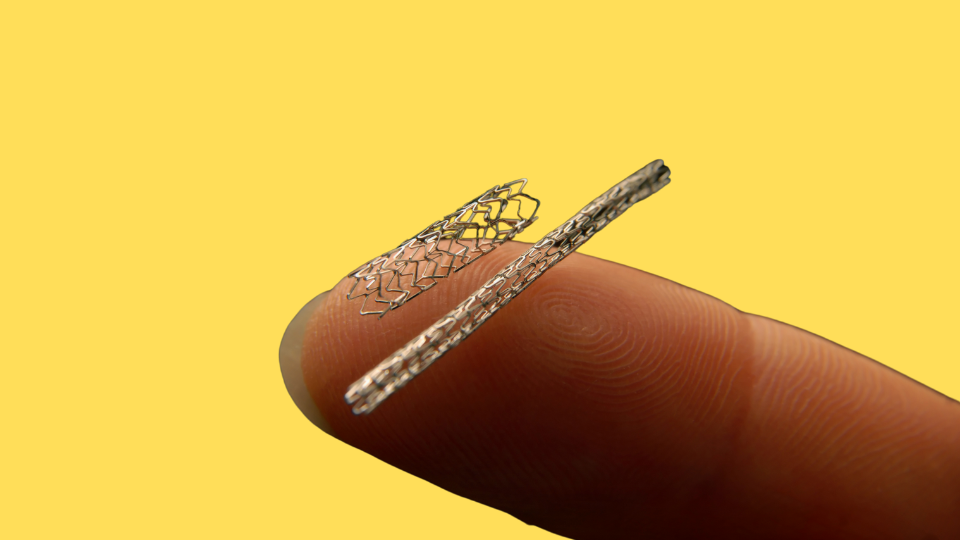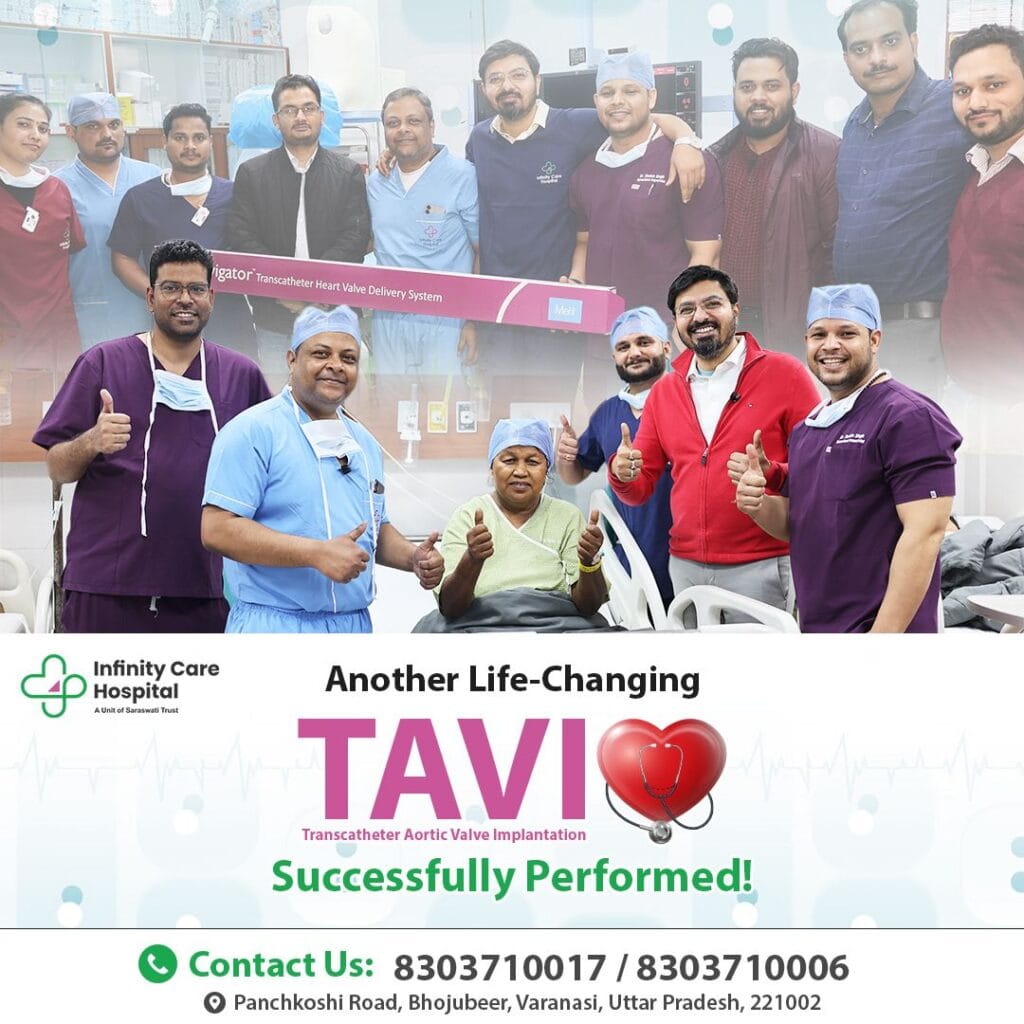Heart health is a big concern for many in India today. With busy lives, changing food habits, and rising stress levels, heart problems like blockages in arteries are becoming more common. If you or someone you love has been told they need a heart stent, you might have questions like: What is a heart stent? How does it work? How long do heart stents last? Don’t worry! This article is here to explain everything about heart stents in a simple, friendly way. Whether it’s about the heart stent procedure, heart stent surgery, or how long a heart cath with stents takes, we’ve got you covered. Let’s dive in!
What is a Heart Stent?
A heart stent is a tiny, metal mesh tube that doctors place inside a blocked or narrowed artery in your heart. Think of it like a small scaffold that holds the artery open so blood can flow easily to your heart muscle. In India, where heart disease is one of the leading health issues, stents are a lifesaver for many people.
Your heart needs oxygen-rich blood to work properly, and this blood travels through arteries called coronary arteries. Sometimes, fatty deposits (called plaque) build up inside these arteries, making them narrow or blocked. This can cause chest pain (angina) or even a heart attack. A stent in the heart helps fix this problem by keeping the artery wide open.
What Are Heart Stents Made Of?
Heart stents come in different types, but most are made of metal, like stainless steel or cobalt-chromium. Some newer stents have a special coating of medicine (called drug-eluting stents) that slowly releases into the artery to stop it from closing again. There are also stents that dissolve over time, though these are less common.
In simple terms, stents in heart are like tiny helpers that support your blood vessels and keep your heart pumping strong.
Why Do You Need a Heart Stent?
You might need a heart stent if:
- Your coronary arteries are blocked or narrowed due to plaque buildup (a condition called atherosclerosis).
- You’ve had a heart attack, and the doctor needs to open the artery fast.
- You feel chest pain or shortness of breath that doesn’t go away with medicines.
In India, doctors often recommend a heart stent procedure when lifestyle changes or medicines alone aren’t enough to fix the problem. It’s a common treatment at hospitals like Infinity Care Hospital, where expert cardiologists use advanced tools to help patients recover quickly.
What is a Heart Stent Procedure?
The heart stent procedure (also called angioplasty) is a way to place a stent without doing open-heart surgery. Here’s how it works in simple steps:
- Preparation: You’ll get a local anaesthetic to numb the area (usually your wrist or groin). You’ll stay awake but feel relaxed with some mild sedation.
- Catheter Insertion: The doctor inserts a thin tube (catheter) into a blood vessel in your wrist or groin. Using X-ray images, they guide it to your heart.
- Balloon and Stent: The catheter has a tiny balloon and a folded stent on it. When it reaches the blockage, the doctor inflates the balloon. This pushes the plaque against the artery walls and opens the stent.
- Finishing Up: The balloon is deflated and removed, but the stent stays in place to keep the artery open. The whole process usually takes 30 minutes to 2 hours.
This isn’t a big surgery with cuts on your chest—it’s minimally invasive, meaning smaller incisions and faster recovery. At places like Infinity Care Hospital, this is a routine procedure done with great care.
How Long Does a Heart Cath with Stents Take?
A heart cath with stents (short for cardiac catheterization with stent placement) depends on a few things, like how many stents you need and how complex the blockage is. On average:
- The procedure itself takes 30 minutes to 2 hours.
- Preparation and recovery add a few more hours, so you might spend 4 to 6 hours at the hospital.
If it’s an emergency (like during a heart attack), it might happen faster to save your life. For planned cases, you’ll likely go home the same day or after an overnight stay. Indian hospitals are well-equipped for this, and doctors ensure you’re comfortable throughout.
How Long Do Heart Stents Last?
A common question is: How long do heart stents last? Good news—most heart stents are designed to last a lifetime! Once placed, they stay in your artery permanently to keep it open. However, there’s a small chance the artery could narrow again (called restenosis), especially if you don’t follow a healthy lifestyle.
- Bare-metal stents: These are simple metal stents and might last many years, but there’s a higher chance of re-narrowing (10-20% in the first year).
- Drug-eluting stents: These are coated with medicine and are more common in India. They lower the risk of re-narrowing to about 5-10% and can last decades with proper care.
The key to making your stent in heart last is taking your medicines (like blood thinners) and living a heart-healthy life—more on that later!
What Happens During Heart Stent Surgery?
You might hear the term heart stent surgery, but it’s not really “surgery” in the traditional sense. It’s a procedure done in a cath lab (a special room with X-ray machines), not an operating theatre. Here’s what to expect:
- Before: You’ll have blood tests and an ECG to check your heart. The doctor might do an angiogram first to see where the blockages are.
- During: As explained earlier, the stent is placed using a catheter, balloon, and X-ray guidance. You won’t feel pain, just maybe some pressure.
- After: You’ll rest in bed for a few hours (longer if the catheter went through your groin). Nurses will check your pulse, blood pressure, and the insertion site.
In India, this procedure is affordable and widely available, even in smaller cities. At Infinity Care Hospital, our team makes sure you feel safe and cared for every step of the way.
Benefits of Heart Stents
Why are heart stents so popular? Here are some big benefits:
- Quick Relief: They ease chest pain and shortness of breath fast.
- No Major Surgery: Unlike bypass surgery, there’s no cutting open your chest.
- Fast Recovery: Most people are back to normal in a week.
- Life-Saving: During a heart attack, a stent can restore blood flow and save your heart muscle.
For many Indians, this is a practical solution to avoid bigger, riskier operations.
Risks of Heart Stents
Like any medical procedure, stents in heart come with some risks, though they’re rare:
- Bleeding: At the catheter insertion site (wrist or groin).
- Blood Clots: A clot could form in the stent, but medicines like aspirin prevent this.
- Re-narrowing: The artery might close again over time (less common with drug-eluting stents).
- Infection: Very rare, but possible at the insertion site.
In India, skilled cardiologists use the latest technology to keep these risks low. Always talk to your doctor about what’s best for you.
Recovery After a Heart Stent Procedure
Recovery from a heart stent procedure is pretty straightforward:
- Day 1: Rest in the hospital. If the catheter was in your groin, you’ll lie flat for 4-6 hours.
- First Week: Avoid heavy lifting or intense exercise. You can walk around lightly.
- Long-Term: Take your medicines (like blood thinners) as prescribed. Follow up with your doctor.
Most people in India return to work or daily chores within a week. At Infinity Care Hospital, we guide you with a recovery plan tailored to your needs.
How to Keep Your Heart Healthy After a Stent
A heart stent isn’t a cure—it’s a fix. To keep your heart strong, try these tips:
- Eat Right: Enjoy dal, roti, veggies, and fruits. Cut down on oily snacks like samosas and sweets like gulab jamun.
- Stay Active: Walk for 30 minutes daily or do light yoga (check with your doctor first).
- Quit Smoking: If you smoke or use tobacco, now’s the time to stop.
- Manage Stress: Try meditation or deep breathing—common practices in India that work wonders.
- Take Medicines: Don’t skip your pills—they prevent clots and keep your stent working.
These small changes can make a big difference, especially with India’s rising heart disease rates.
Heart Stents in India: What’s Special?
In India, heart stents are affordable compared to many countries, thanks to government caps on prices and local manufacturing. Hospitals like Infinity Care Hospital offer world-class care at a fraction of the cost you’d pay abroad. Plus, Indian cardiologists are some of the best, handling thousands of cases yearly with high success rates.
Frequently Asked Questions About Heart Stents
1. What is a Stent in the Heart?
It’s a small metal tube placed in a blocked artery to keep it open and let blood flow to your heart.
2. How Long Does a Heart Cath with Stents Take?
Usually 30 minutes to 2 hours, plus a few hours for prep and recovery.
3. How Long Do Heart Stents Last?
Most last a lifetime, but you need to care for your heart to avoid new blockages.
4. Are Heart Stents Safe?
Yes, they’re very safe, with rare complications when done by experts.
Final Thoughts
A heart stent can be a game-changer if you’re struggling with heart problems. Whether it’s the heart stent procedure, understanding what a heart stent is, or knowing how long heart stents last, we hope this guide has cleared things up for you. In India, where heart disease affects millions, stents offer hope and a chance to live healthier.
At Infinity Care Hospital, we’re here to help you every step of the way—from diagnosis to recovery. If you have more questions or need expert advice, reach out to us. Your heart deserves the best care—let’s keep it beating strong!




